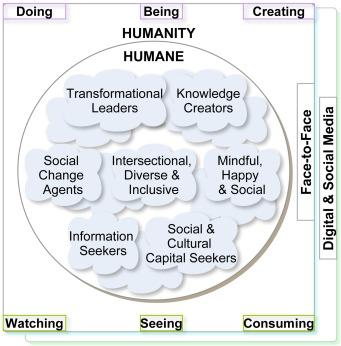Preparing Students for Jobs of the Future: Essential Skills and Strategies for Success
As technological advancements, automation, and globalization continue to transform the workplace, educational institutions face both a challenge and an opportunity: preparing students for the jobs of the future. In a fast-changing economy, equipping students with future-ready skills is more crucial than ever. This comprehensive guide explores the essential skills for tomorrow’s workforce, practical strategies for success, and the actionable steps educators, parents, and policymakers can take to empower the next generation.
Why Preparing Students for Jobs of the Future Matters
As artificial intelligence, big data, and automation redefine entire industries, customary jobs are being reshaped and new roles are emerging. According to a report by the World Economic Forum, more than 65% of children entering primary school today will work in jobs that do not yet exist. Therefore, nurturing versatility, digital literacy, and foundational skills must be at the heart of modern education.
“The future belongs to those who learn more skills and combine them in creative ways.” — Robert Greene
essential Skills for Future Careers
Today’s students must cultivate a diverse skill set that extends beyond traditional academic knowledge.Here are the key skills needed for future jobs:
1. Digital Literacy and Technical Skills
- Coding and programming – foundational for many tech-driven roles.
- Data analysis – ability to interpret and use data for decision-making.
- Familiarity with automation and AI tools – understanding how to leverage new technologies.
- Basic knowledge of cybersecurity and digital privacy.
2. Critical Thinking and problem-solving
- Analytical skills – evaluating details objectively.
- Creative problem-solving – generating innovative solutions.
- Decision-making under uncertainty.
3. Interaction and Collaboration
- Effective written and verbal communication.
- Teamwork and interpersonal skills for thriving in diverse work environments.
- Cross-cultural competence, especially in globalized markets.
4. adaptability and Lifelong Learning
- Openness to change and the ability to learn new skills rapidly.
- Resilience in facing setbacks or career pivots.
- Cultivating a growth mindset for ongoing self-enhancement.
5. Emotional Intelligence (EQ)
- Self-awareness and regulation of emotions.
- Empathy and social skills in leadership and teamwork settings.
- Conflict resolution and negotiation abilities.
effective Strategies to Prepare Students for Future Careers
Building future-ready skills doesn’t happen by chance. Schools, teachers, and parents can implement the following strategies to ensure students are prepared for future jobs:
1. Integrate Technology Across the Curriculum
- Introduce coding, robotics, and STEM activities from early grades.
- Leverage digital tools for research, presentations, and collaboration.
- Encourage safe and responsible use of technology.
2. Promote project-Based and Experiential Learning
- Implement real-world projects that require collaboration and critical thinking.
- Encourage field trips, internships, and interactions with professionals.
- Foster makerspaces and hands-on workshops.
3. Strengthen Career Guidance and Mentorship
- Offer career counseling and exposure to emerging industries.
- Connect students with mentors and role models in relevant fields.
- Support exploration of non-traditional career pathways.
4. Teach Adaptability and Self-Learning Techniques
- Encourage students to pursue autonomous learning projects.
- Provide tools for effective time management and self-motivation.
- Discuss the importance of growth mindset and adaptability in class.
Benefits of Future-Ready Education
- Prepares students to thrive in rapidly evolving industries.
- Fosters confidence, creativity, and leadership.
- Bridges the gap between school and workplace expectations.
- Reduces the risk of skill obsolescence and unemployment.
- Enhances national competitiveness in a global economy.
Case Study: Future-Ready Schools in Action
Finland’s national Curriculum has garnered worldwide attention for proactively preparing students for future jobs.Schools there have adopted interdisciplinary “phenomenon-based learning,” combining subjects like math, science, art, and language into projects that address real-world problems. Students develop both technical competencies and critical soft skills while engaging with local businesses and communities. This holistic approach has resulted in high levels of student engagement and career readiness.
“In my school, we worked together to design a green energy solution for our town square. I learned about physics, teamwork, and presenting to a real audience.It made learning feel purposeful and fun.” — Ella, Secondary School Student
Practical Tips for Educators and Parents
- Encourage curiosity: Support students in asking questions and exploring new ideas independently.
- Model lifelong learning: Share your own learning journey to inspire students to keep growing beyond school.
- Balance academics with life skills: Emphasize communication, critical thinking, and emotional resilience alongside grades.
- Stay updated on job trends: Regularly consult trusted sources like the World Economic Forum, LinkedIn Job Reports, or the Department of labor for emerging career fields and skills in demand.
- Create learning communities: Foster partnerships with local businesses, NGOs, and alumni networks to provide mentorship and real-world learning opportunities.
Conclusion: Empowering a Future-Ready Generation
Preparing students for the jobs of the future is a shared obligation across schools, families, and communities. By prioritizing essential skills like digital literacy, critical thinking, communication, and adaptability, we give young people the best chance of success in the workforce of tomorrow. The future might potentially be uncertain, but with the right planning and mindset, today’s students can become the innovative, resilient leaders our ever-changing world needs.
start today — champion future-ready education and equip our students to not just participate in, but shape the future of work.

